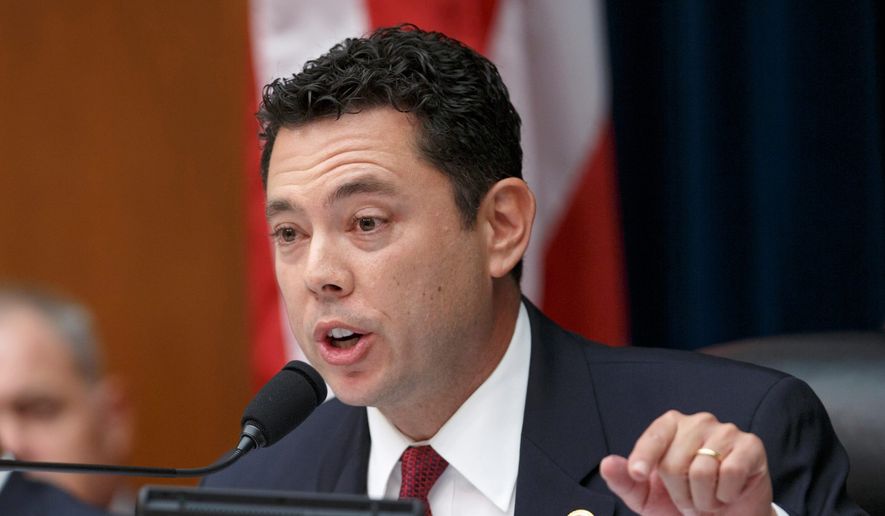The House’s top investigator vowed Wednesday to bring the IRS to heel after he had to issue a subpoena to compel the agency’s top transparency officer to appear before Congress to talk about transparency — a move Oversight Committee Chairman Jason Chaffetz said was embarrassing for the IRS.
“We will drag the IRS up here every single week if we have to. You are going to respond to the United States Congress. You are going to respond to the people,” the Utah Republican told Mary Howard, director of disclosure at the IRS, who only appeared after Mr. Chaffetz issued the subpoena forcing her to testify.
The House Oversight Committee is trying to press the administration to live up to President Obama’s pledge of being the most transparent in history — a vow that departments have struggled to meet, saying they have been overwhelmed by the number and complexity of questions.
Ms. Howard, the IRS official, said her agency has been grappling with an intense interest from both Congress and taxpayers after it was revealed that they targeted conservative and tea party groups’ tax-exempt status applications for intrusive scrutiny.
More than 150 Freedom of Information Act requests were filed related to the targeting, and multiple congressional committees began investigations. Mr. Howard said she’s not involved in responding to those requests, which were shuttled off to a special group, but she said despite two years’ time, 34 of the original 154 cases remain open.
“We regret that the process has taken this long,” she said.
SEE ALSO: Hillary Clinton, Martin O’Malley, Bernie Sanders jockey for Hispanics’ 2016 support
But she defended her agency’s transparency record, saying they are trying to do the best they can with the money and manpower they have. She said their technology in particular is woefully inadequate, and that searching for records to respond to a request means going through each employee’s email inbox separately.
Other agencies said they have the ability to search across multiple employees’ mailboxes, and a stunned Mr. Chaffetz said he didn’t believe that the IRS had no way to do that.
The Obama administration witnesses said part of their difficulty in meeting transparency goals has been an explosion in open-records requests, even as their staff have been kept the same or cut.
Homeland Security, which includes myriad agencies and receives the most requests of any department in government, said it’s seen a 182 percent increase since 2009.
The number of cases deemed “complex” — meaning they require more time than the law usually allows — have also grown, which is why the backlog is longer. It’s also led to requested having to file lawsuits to force the administration to comply with open-records laws.
The hearing comes as questions continue to swirl over former Secretary of State Hillary Rodham Clinton’s emails, which in defiance of policy she kept on a personal server she set up in her New York home.
SEE ALSO: ‘Virtual U.S. Embassy Tehran’ helps U.S. connect with Iranians on Facebook
She didn’t turn over the emails, which are considered government property, to the State Department until nearly two years after she left office — and then only because she was prodded by the department and by a special investigative committee looking into the 2012 Benghazi terrorist attack.
Joyce A. Barr, chief FOIA officer for the State Department, said they’re happy to have the records now, though there’s little they can do to make sure Mrs. Clinton turned everything over.
“She has assured us that she gave us everything she had, and like we do with other federal employees we have to depend on them to provide that information to us,” Ms. Barr said. “We have the documents and we’ve accepted her assurance that she’s given us everything she had that should have been a part of our federal records.”
For their part Democrats said questions should be aimed at Mrs. Clinton’s predecessors in the Bush administration. The State Department, when it prodded Mrs. Clinton for her messages, also asked former Secretary Colin Powell and former Secretary Condoleezza Rice whether they still had messages.
Mr. Powell, who used a private account during his time at the department, didn’t turn over any messages.
Ms. Rice has told the State Department that she didn’t use email much for business but what official correspondence she did was conducted on a department account in accordance with standard practices.
• Stephen Dinan can be reached at sdinan@washingtontimes.com.




Please read our comment policy before commenting.